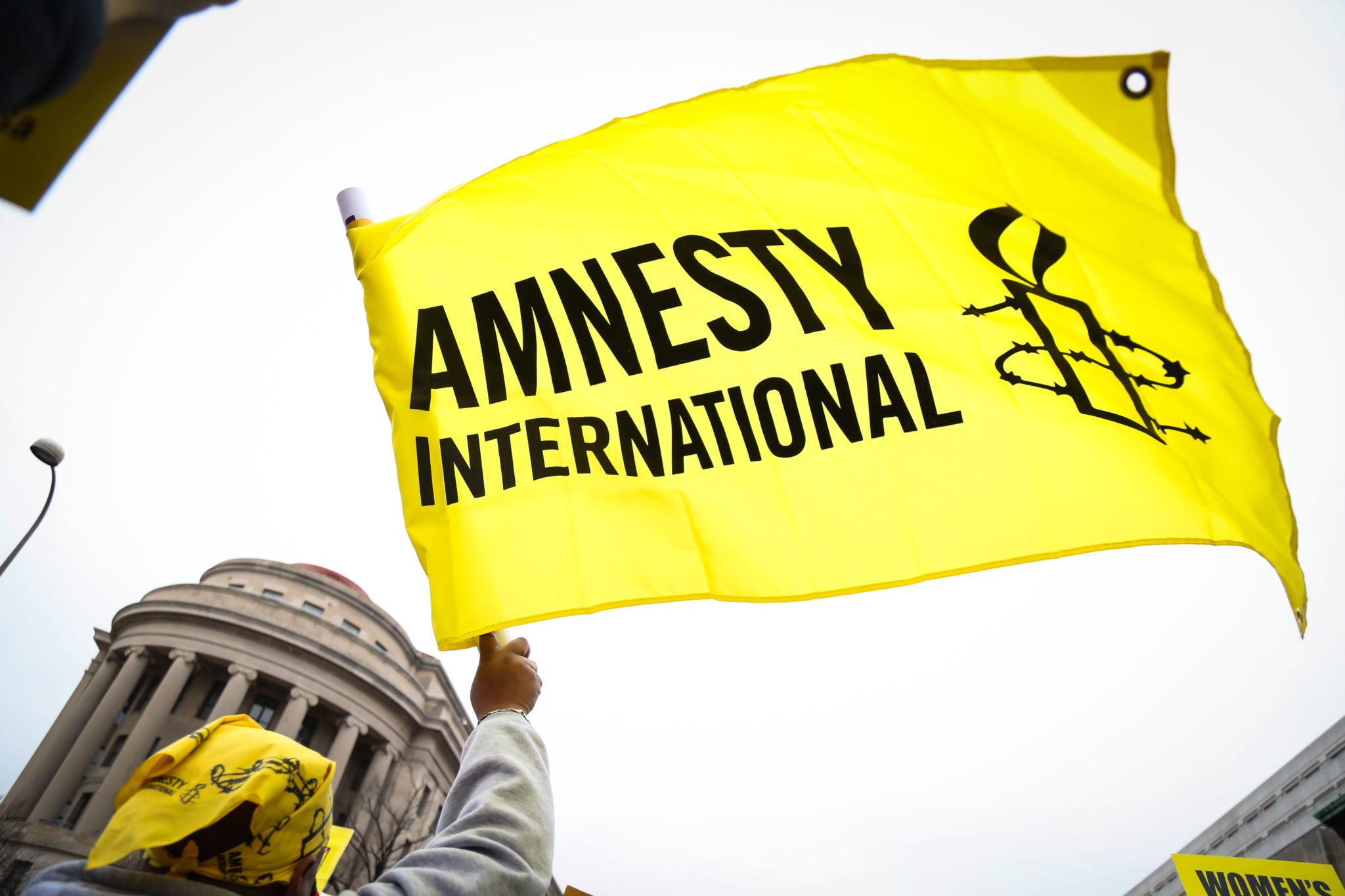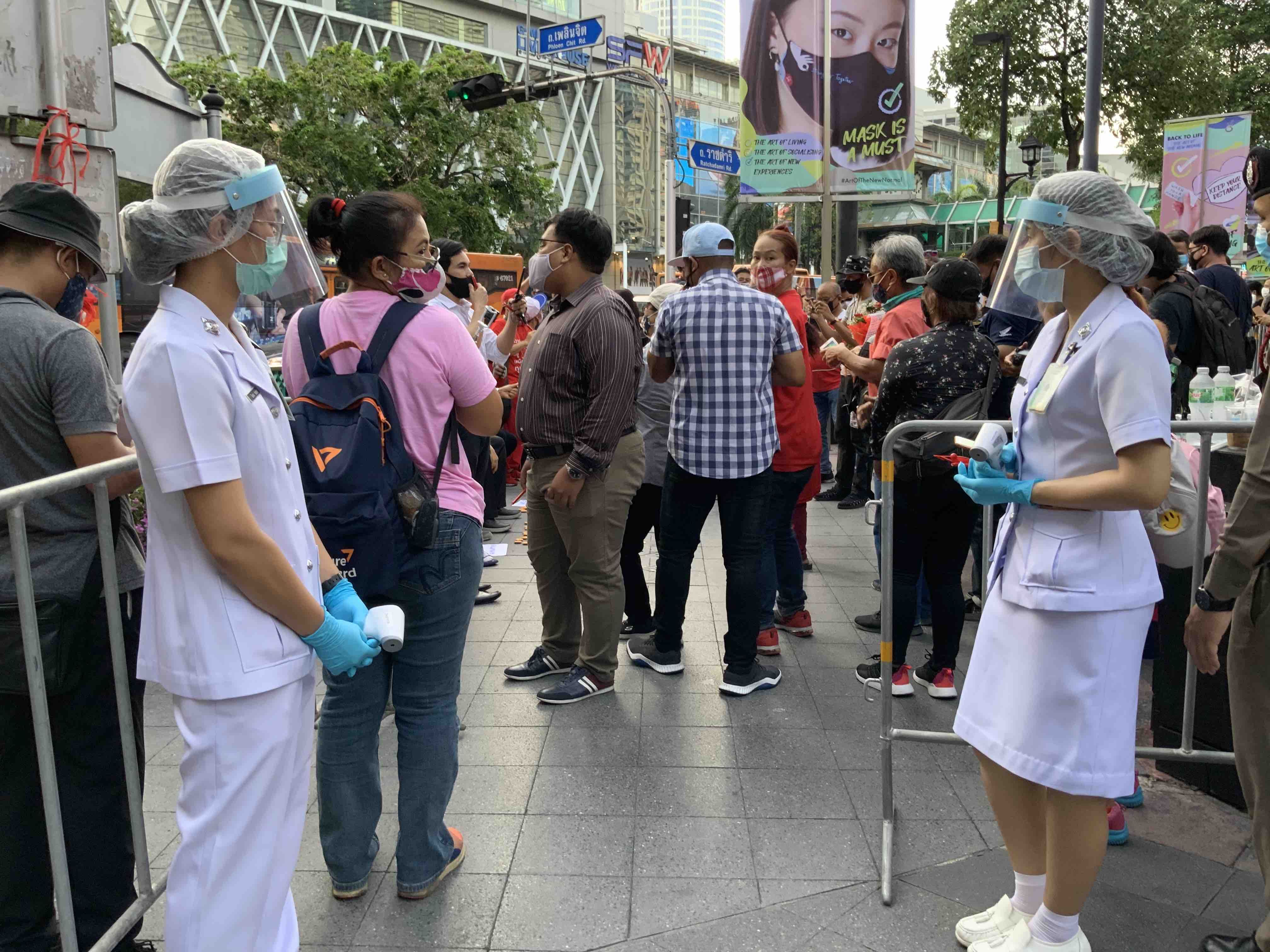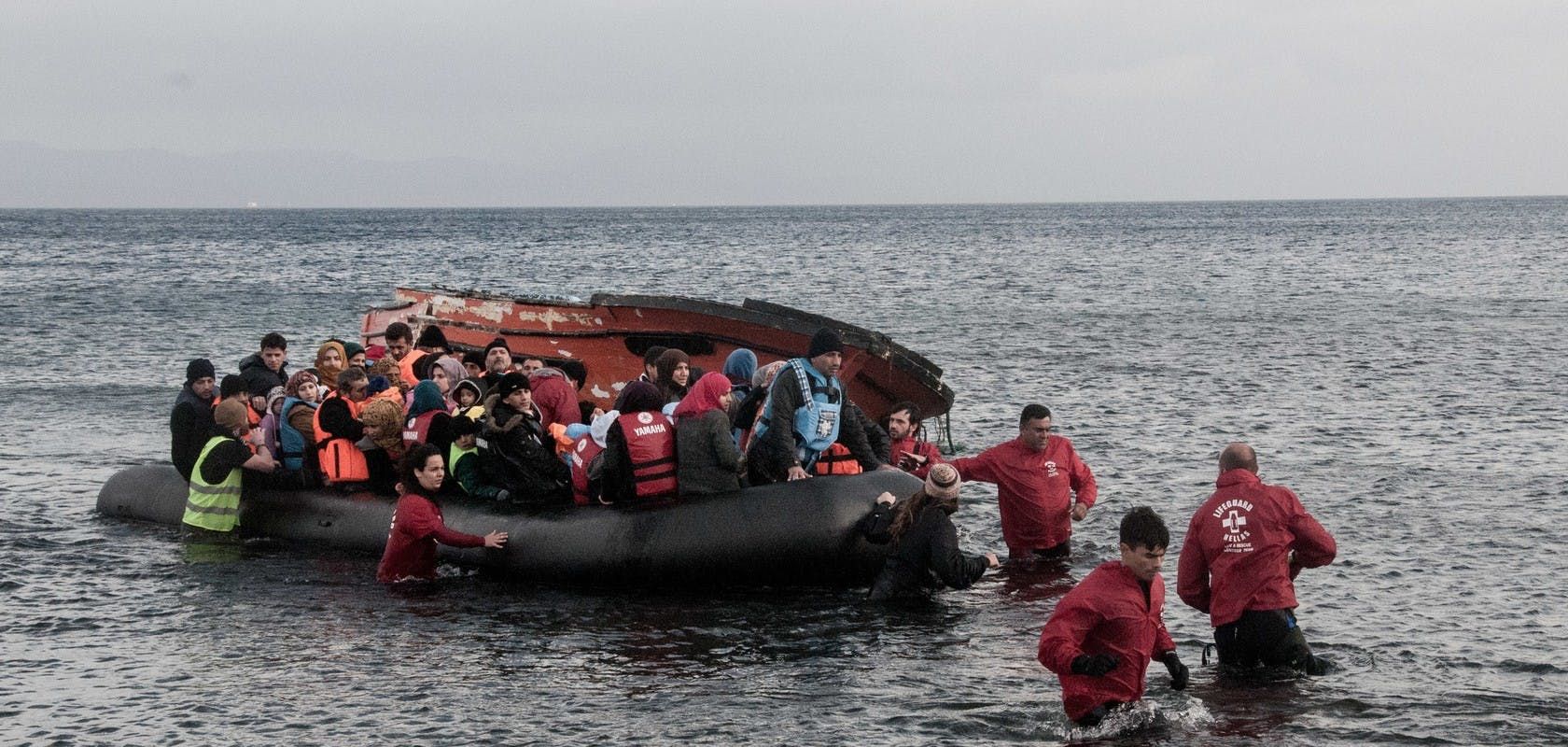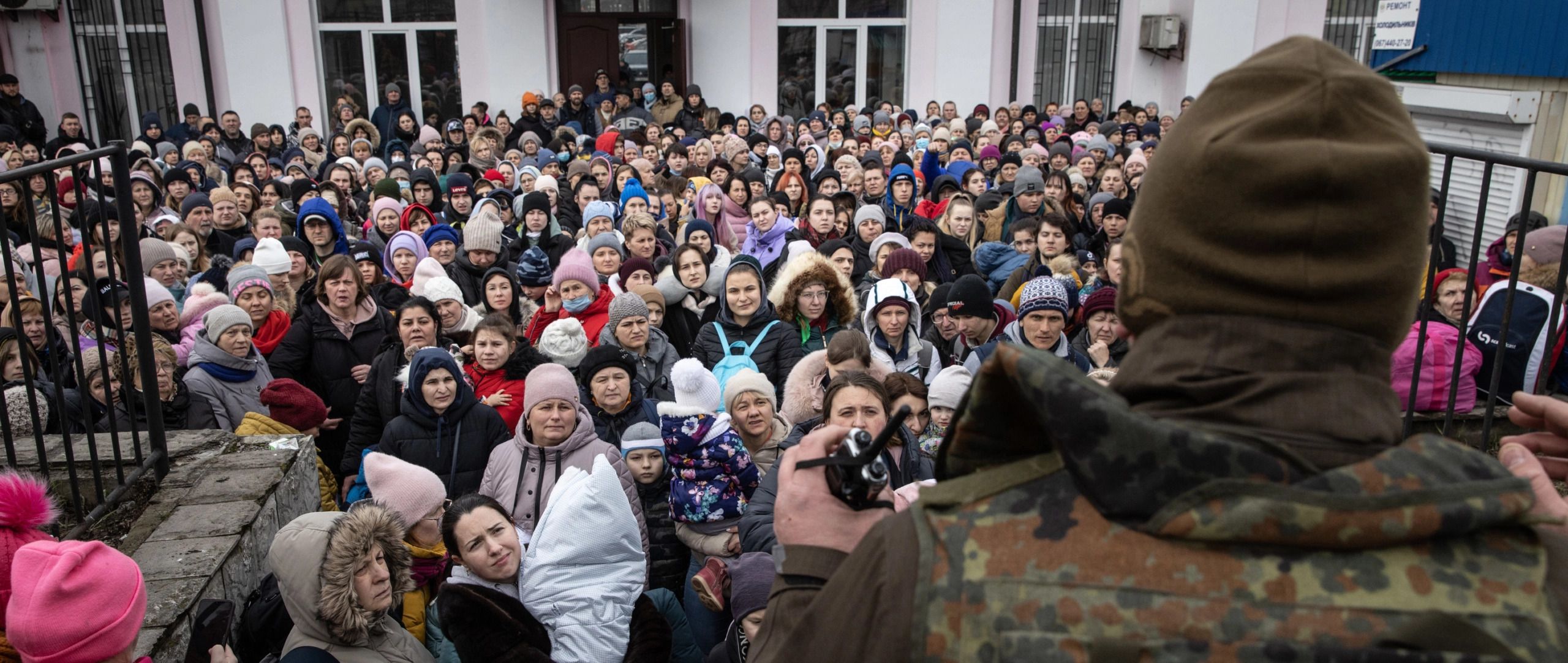Thailand: Drop unjustified charges and release peaceful protesters
24 October 2020
Amnesty International
- 84 people charged since 13 October, usually on vague and politically motivated charges
- Use of arbitrary charges are “merely tactics to scare the whole movement”
As peaceful protests in Thailand grow, the authorities continue to use vague, overly restrictive laws to harass and silence people, said Amnesty International today. The organization calls on the authorities to immediately drop all charges against peaceful protesters and release those still detained.
“The steadily growing protests across Thailand are clear proof of how much people value their rights to freedom of expression and peaceful assembly,” said Rajat Khosla, Amnesty International’s Senior Director for Research, Advocacy and Policy.
“Instead of maintaining a safe space for people to express their opinions, authorities have repeatedly criminalized peaceful protests through Thailand’s vaguely worded and draconian laws. Charges brought against the supposed protest leaders are merely tactics to scare the whole movement. They are arbitrary, unwarranted and politically motivated.”
At least 84 people have been charged since 13 October, the start of a wave of near-daily mass rallies that followed regular protests across Thailand starting in February. The protests were prompted by the Constitutional Court dissolving the Future Forward party, popular with many young people. Among those charged are two children, aged 16 and 17.
Charges brought against the supposed protest leaders are merely tactics to scare the whole movement. They are arbitrary, unwarranted and politically motivated.Rajat Khosla, Senior Director for Research, Advocacy and Policy
The overwhelmingly peaceful protests have coalesced around three demands: dissolving the parliament and holding fresh elections; political reforms including reforms to the monarchy and revising the military-drafted constitution; and ending the harassment of peaceful government critics.
In response to mounting protests, on 15 October the authorities declared a “severe” state of emergency, banning gatherings of five people or more in the capital, Bangkok as well as the publication of news or online messages that “could create fear”, affect national security or damage public morale.
State of emergency lifted – but scores charged and many detained
The “severe” state of emergency was lifted earlier this week, on 22 October, following a televised address by Prime Minister Prayut Chan-O-Cha the previous evening. (Authorities continue to enjoy emergency powers under a separate Emergency Decree in effect since May 2020, ostensibly to control the COVID-19 pandemic.)
In his Wednesday speech, the Prime Minister described the protesters as “peaceful, well-meaning people who are genuine in their desire for a better society and a better nation”, although he accused a minority of committing crimes. He highlighted the role of the special parliamentary sessions scheduled on 26 and 27 October to "discuss and resolve these differences through the parliamentary process”.
“The Prime Minister acknowledged that protesters have been overwhelmingly peaceful and lifted the state of emergency. This was a welcome recognition by the government of the right to protest and a de-escalation in the authorities’ approach,” said Rajat Khosla.
“But the authorities must now move beyond rhetoric and drop the charges against peaceful protesters. This should include quashing convictions of all others penalized since the 2019 elections for peacefully calling for reform or expressing political views.”
A total of 90 have been detained since 13 October, with 84 charged. Six were released without any charges, most others released on bail. Eight remain in detention, including student protest leaders Panusaya “Rung” Sithijirawattanakul and Parit “Penguin” Chiwarak; lawyer Arnon Nampa; former prisoners of conscience Patiwat “Bank” Saraiyaem, Ekachai Hongkangwan and Somyot Pruksakasemsuk; activist Panupong “Mike” Chadnok and child welfare activist Suranat “Tan” Paenprasert.
The Prime Minister acknowledged that protesters have been overwhelmingly peaceful and lifted the state of emergency... But the authorities must now move beyond rhetoric and drop the charges against peaceful protesters.Rajat Khosla
“These protest leaders are behind bars solely for peacefully expressing their views on political reforms and human rights. There is no basis for their detention and they must be released immediately and unconditionally,” said Rajat Khosla.
Majority charged on vague, draconian charges
An estimated 84 people have been charged with crimes since 13 October, a majority of them (65) for breaches of the vaguely-worded "severe” state of emergency lifted on 22 October.
Several have been charged with ‘sedition’ (section 116 of the Penal Code), a broadly-worded law often used to quash dissent by authorities which carries a maximum jail sentence of seven years. Others have been charged for their social media activities under the Computer Crime Act, a law which also contains many vague provisions that have regularly been used to limit people’s freedom of expression, as Amnesty International documented in a report earlier this year.
Three people – undergraduate student Boonkueanoon “Francis” Paothong, pro-democracy activist Ekachai Hongkangwan and child welfare activist Suranat Paenprasert – have been charged under section 110 of the Criminal Code for “intending to cause harm to Her Majesty the Queen’s liberty”, a charge which carries a maximum sentence of life imprisonment.
The three were among a peaceful assembly on 14 October which the Queen’s motorcade passed through. Authorities have not credibly explained why these three were singled out for prosecution from among the masses gathered or what risk may have been brought by their alleged actions. “Francis” Paothong has been released on bail, while the other two remain in detention.
An estimated 54 people have been charged with multiple offences and some face lengthy jail sentences. In a particularly egregious example, 22-year-old political science student Parit “Penguin” Chiwarak faces at least 18 criminal charges for his alleged role in recent public protests, including calling for an investigation into the alleged abduction of Wanchalearm Satsaksit, a Thai blogger in exile in Cambodia who disappeared there in June.
“Thai authorities must build on their latest commitments to de-escalate the situation. They must end the legacy of misuse of emergency laws, mass arrests and legal harassment,” said Rajat Khosla.
Amnesty International calls on the Thai authorities to respect their international obligations to protect the human rights to freedom of expression and peaceful assembly under the International Covenant for Civil and Political Rights, as well as protect the rights of persons under the age of 18 who attend protests under the Convention on the Rights of the Child, both binding on Thailand.
Thai authorities must build on their latest commitments to de-escalate the situation. They must end the legacy of misuse of emergency laws, mass arrests and legal harassment.Rajat Khosla
Background
While this current wave of protests started in February 2020, they can be traced back to the 2019 elections, when the Future Forward party polled highly among young people for whom this was the first opportunity to vote since the 2014 military coup.
The Future Forward party obtained the third-largest share of seats in parliament, but authorities launched an onslaught of court cases and other means to intimidate and harass its members and hobble the party’s ability to participate in the political process, culminating in its dissolution in February.
As the protests have grown, so too has the government’s repression against protesters. The dispersal of the 16 October largely peaceful protest by police using water cannons with chemical irritants marked an alarming escalation in the use of force.
Amid an increasingly excessive response to peaceful demonstrations in October, Bangkok’s mass transit systems were shut down to stop protesters gathering and major intersections were blocked. Media groups Voice TV, Prachatai, The Reporters and The Standard were the subject of a government shutdown order for allegedly breaching the 15 October Emergency Decree, although the Criminal Court ultimately lifted the order, one day after initially upholding it in the case of Voice TV.
The authorities have also threatened to disable the messaging app Telegram in relation to its use by protesters and censor the social media channels of the Free Youth Movement student group. The authorities have previously threatened legal action against social media platforms including Facebook, Google and Twitter for not acting on content removals. In August, Facebook said it had complied with some takedown orders from the Thai authorities.




